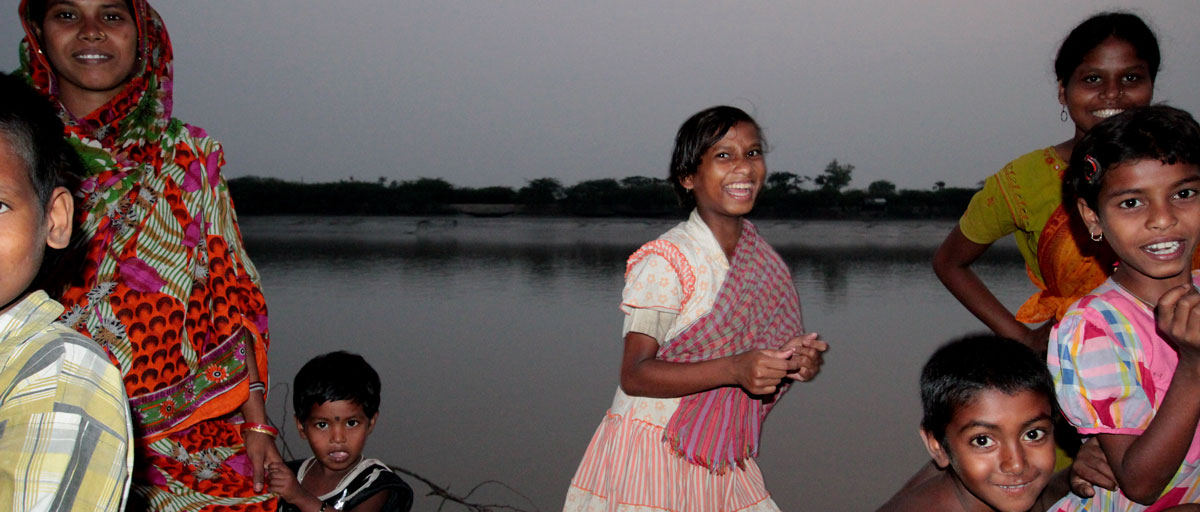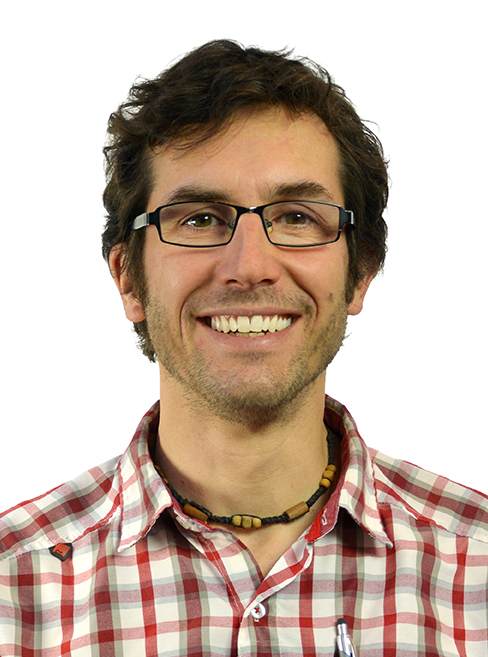
Scientists from several institutions including the Stockholm Resilience Centre will collaborate on ambitious research to gain a deeper understanding of the relationship between humans and their environment in achieving the United Nations Sustainable Development Goals (SDGs). One focus is the Ganga Delta, India. Photo: K. Hatch/Flickr
Bildtext får vara max två rader text. Hela texten ska högerjusteras om den bara ska innehålla fotobyline! Photo: B. Christensen/Azote
NEW PROJECT
Humans, nature and the SDGs
Centre partner in ambitious research to gain a deeper understanding of the relationship between humans and their environment in achieving the Sustainable Development Goals
- Stockholm Resilience Centre is a partner on two projects granted under the TaSE initiative, funded by UK, Swedish and Indian research funding agencies
- One project is about SDG tradeoffs in deltas, and will develop a systems model of the interaction between food, water, livelihoods and land use change in the Indian Ganga delta
- The second project, Nature4SDGs, will analyse the relationship between nature and multidimensional human wellbeing in 11 sites in the Global South, based on existing data
Centre researcher Tim Daw is the Swedish principle investigator for two projects that will look at the role of human-environment interactions in achieving the
Sustainable Development Goals (SDGs). The projects is a collaboration between the centre, King’s College London and University of Southampton along with other partners in the UK and India.
The projects are funded through the Towards a Sustainable Earth initiative, a collaboration between Swedish, Indian, Chinese and Japanese funding agencies.
Tim Daw says about the projects: “This is an exciting opportunity to develop new research partnerships, and to apply social-ecological research towards the challenges countries face in achieving SDGs.”
Agreed in 2015 by all the countries of the United Nations, the Sustainable Development Goals represent a blueprint for enabling humanity to achieve a sustainable future, in which all people can flourish while protecting the environment on which we all depend. However, complex interactions between individual SDGs means that Agenda 2030 has to be delivered holistically with an understanding of the trade-offs and possible synergies between the SDGs.
Focus on the Ganga delta in India
In one project, Stockholm Resilience Centre will collaborate with the University of Southampton and Jadavpur University, Kolkata India to analyse the synergies and conflicts between the SDGs and explore the resulting opportunities and trade-offs in policy in The Ganga delta in India.
Deltas illustrate the complex challenge of Agenda 2030, with high population densities and a strong dependence on rural livelihoods. They are subject to multiple drivers of change including climate change, sea-level rise, subsidence and reducing sediment inputs. Meanwhile, global economic drivers cause extensive land conversion from agriculture to aquaculture, and widespread migration and urbanisation.
The project will also make use of extensive data from Southampton University’s DECCMA project. In collaboration with Indian stakeholders the team will develop an Integrated Assessment Model (IAM) to explore interactions between the SDGs of (1) no poverty, (2) zero hunger, (10) reduced inequalities, (13) climate action and (14) life on land and (15) below water. The IAM will be developed and applied to explore urgent policy dilemmas and plausible futures.
A research assistantship at the SRC and a postdoctoral modelling position at the University of Southampton will be advertised soon to work on the project.
Nature's contribution to poverty alleviation, human wellbeing
The SRC is also a partner in the ‘Nature4SDGs’ project led by King’s College London, in collaboration with the Ashoka Trust for Research in Ecology and the Environment, India and a number of other UK universities. The team will draw upon existing datasets from 11 sites in the Global South (many developed under the ESPA programme) to analyse the relationship between natural resource management and the SDGs, including synergies and tradeoffs.
The project aims to:
- assess the contribution of nature to multidimensional human wellbeing at local level, focusing specifically on the experience of the poorest
- analyse the policies and factors at various scales which drive the observed relationships between nature and wellbeing
- determine how local, socially-disaggregated nature-wellbeing relationships are reflected in national-level and modelled data used to report on the SDGs, including (Co$tingNature and FEEDME)
The team will engage with policy-makers across the study areas, and especially in India. They hope to support development of rigorous sustainable development indicators and more appropriate environment-related policies.
Nature4SDGs leader, Kate Schreckenberg from King’s College London explains, "reporting on the SDGs tends to happen at national level and can overlook the local-level reality of how some communities interact with and rely upon natural resources to avoid poverty."
"We hope that our work will improve understanding of how key policies – particularly those related to conservation and agriculture – affect the nature-wellbeing relationship at local level. In this way, the project may contribute to more appropriate environment-related policies and interventions which help achieve the overarching SDG aim of ‘leaving no-one behind."
A postdoctoral data-analysis position at SRC and two postdoctoral positions at ATREE will soon be advertised to work on this project. Click here to learn more about the project
Tim Daw studies the interaction between ecological and social aspects of coastal systems and how these contribute to human wellbeing and development.







